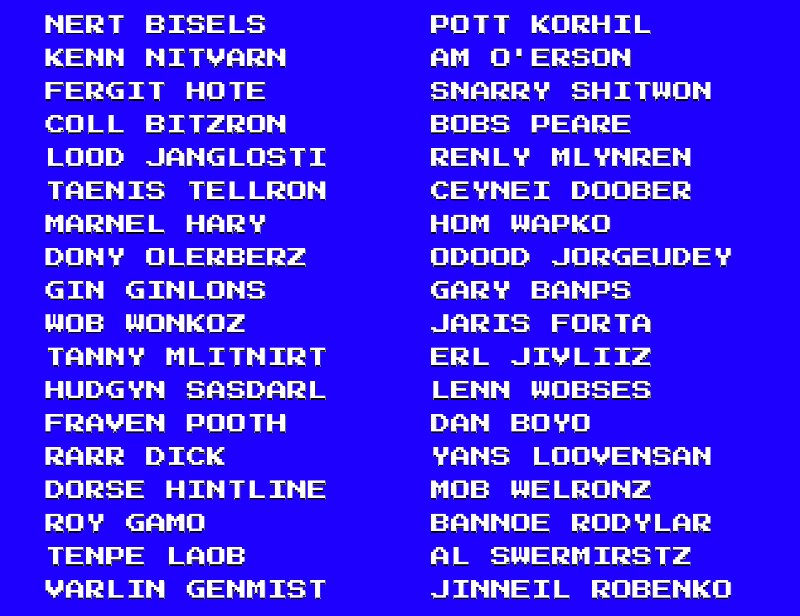Japanese Names And Meanings AI meaning 'love' (愛藍) - Japanese girl name. AIKA meaning 'love song' (愛佳) - Japanese girl name. AIKO meaning 'child of love' (愛子) - Japanese girl name.
- As the Japanese idiom goes: “Ten men, ten colors.”. If you’re looking for Japanese names, this Japanese name generator is built to be a starting point! Each name is computer-generated and we encourage you to do further research on naming traditions and meanings for your exact region. (Note: In Japanese, surnames come before the first name.
- From Japanese 晶 (aki) meaning 'clear, crystal', 明 (aki) meaning 'bright' or 秋 (aki) meaning 'autumn'. It can also come from 亜 (a) meaning 'second, Asia' combined with 希 (ki) meaning 'hope'. Other kanji or combinations of kanji can form this name too. Akihiko 明彦, 昭彦, あきひこ m Japanese.
Choosing a Japanese Name
The Japanese language has a unique naming system. When naming their children, pronunciation and the meaning of the kanji are the main considerations.
Usually, one Japanese name can be written in different kanji.
For example, the boy’s name “かいと”(Kaito) can be written as 海斗, 快斗,魁人 and so on.
Due to this unique feature of the Japanese naming system, many Japanese names sound the same but are expressed in different Kanji.
Top 10 most popular Japanese names and pronunciations for boys and girls born in 2018.
Top 10 Japanese names for boys and girls in 2018
Boy’s / Men’s Japanese names:
蓮 – Persistent:(れん Ren)
湊 – Unite people together:(みなと Minato)
大翔 – Big heart:(そらSora)、(おうが Ouga)、(たいが Taiga)、(たいし Taishi)、(ひろと Hiroto)
大和 – Big heart:(だいと Daito)、(だいや Daiya)、(なごみ Nagomi)、(ひろと Hiroto)、(やまと Yamato)
陽翔 – Shine like the Sun and fly high:(あきと Akito)、(はると Haruto)、(はるひ Haruhi)、(ひかる Hikaru)、(ひなた Hinata)
悠真 – Grow healthy and positively:(ゆま Yuma)、(はるま Haruma)、(ゆうま Yuuma)、(ゆうしん Yuushin)
樹 – Full-filled with vitality:(みき Miki)、(いつき Itsuki)、(いずき Izuki)、(たつき Tatsuki)
陽太 – Bring hope to the others like the Sun:(ようた Youta)、(はるた Haruta)、(はると Haruto)、(ひなた Hinata)
朝陽 – Morning Sun:(あさひ Asahi)
悠人 – A calm person:(ゆうと Yuuto)、(はると Haruto)、(ひさと Hisato)、(はるひと Haruhito)

Girl’s / Women’s Japanese names:
結月 – Bring good fortune:(ゆず Yuzu) 、(ゆいる Yuiru)、(ゆずき Yuzuki)、(ゆつき Yutsuki)、(ゆづき Yuzuki)
結愛 – Foster good loveship:(ゆあ Yua)、(ゆい Yui)、(ゆな Yuna)、(ゆの Yuno)、(ゆめ Yume)
結菜 – Achieve great results:(ゆな Yuna)、(ゆいな Yuina)、(ゆうな Yuuna)
杏 – Helpful:(あん An)、(こう Kou)、(もも Momo)、(あんず Anzu)、(あんな Anna)
さくら – Beautiful like the cherry blossom :(さくら Sakura)
凛 – Be tightened, motivated:(りん Rin)
芽依 – Beloved:(めい Mei)
葵 – Honest, respectful:(あお Ao)、(めい Mei)、(あおい Aoi)、(ひまり Himari )
紬 – Gorgeous:(つむぎ Tsumugi)
莉子 – Cuteness:(りこ Riko)
As one name can possibly have multiple pronunciations, let’s take a look at the top 10 most popular pronunciations for boy’s name as well as girl’s name!
Recently, to make their child stand out from the crowd, some young parents name their child with rarely used kanji or unusual pronunciations which convey other meanings.
For example, 「皇帝」(しいざあ shiizaa) sounds like the English word “Caesar”.
Moreover, the Kanji word “皇帝” means emperor. Such names are called “Kira Kira Names” “(shiny, sparkly names)”.
Click here for more interesting Kira Kira Names!
Downloadable powerpoint:
Are you more familiar with Japanese names now? If you are interested in other Japanese culture, please take a look at our blogs.
If you are interested in studying Japanese, find out more about our school by filling out the form below.
Convert Your Name to Japanese
This is another one of those romaji to Katakana converters.
- in katakana is . This is the conventional way to represent foreign names in Japanese.
- in romaji is This is how you would pronounce it using the roman alphabet.
If you are looking for Japanese names, you can search our list of Japanese names.
Japanese Names And Meanings
Not another romaji to katakana converter...?
...Not exactly. This one is different. It attempts to transliterate real natural English to katakana more accurately than most of the other transliterators out there.
It does this by using a combination of dictionary lookup (from a database of more than 4,000 common names), substitution rules and machine learning.
Emica (エミカ)
Nolan Lawson describes in detail here how he developed the engine. I extend mountains of gratitude to Nolan for allowing me to use this on Japanga.com